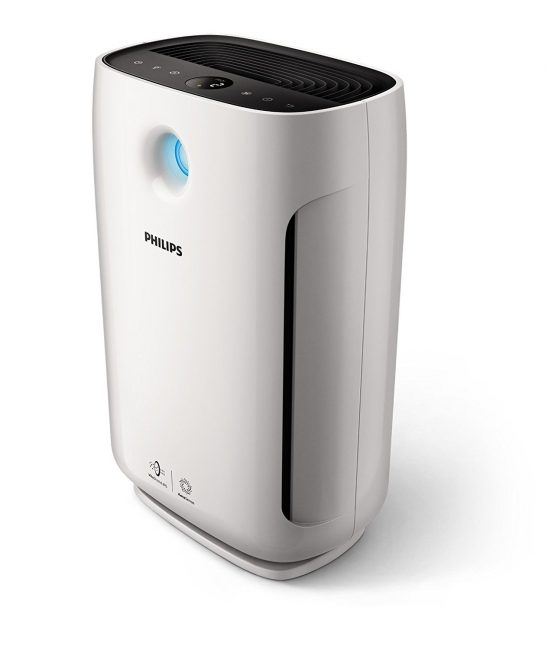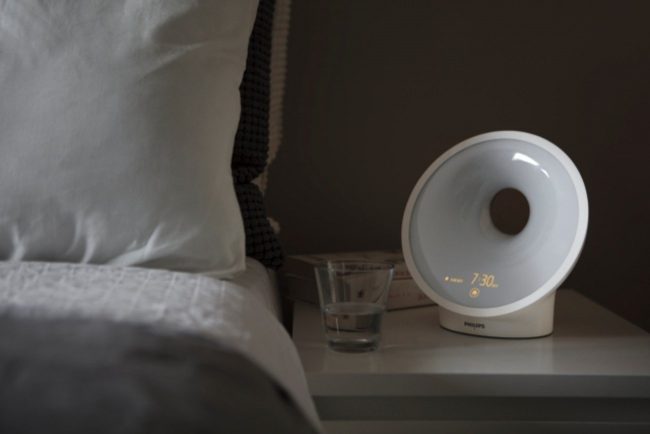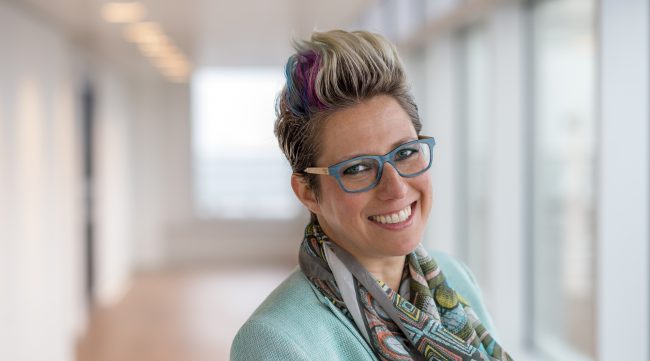Philips has set the goal to improve the lives of 3 billion people per year by 2025, and part of the way that they hope to achieve this goal is by bridging the gap between consumer and professional health. To that end, at the IFA GPC, Philips’s Liat Ben-Zur talked about the importance of healthy sleep.
Liat Ben-Zur, Philips Senior Vice President, Head of Connected Digital Platforms Propositions, opened her presentation with an overview of Philips’ “innovative solutions for a happy and joyful life.” It was mentioned that nowadays, people are busier than ever, but since no one wants to give up their downtime or their time spent with family, sleep is often what’s sacrificed. Due to that, 30% of US adults suffer from insomnia. Chronic sleep loss leads to loss of memory, loss of focus, and is often followed by chronic health issues. I’ve suffered from insomnia off and on for years, and I can heartily agree that when you don’t get enough sleep, everything starts to fall apart.
So what does Philips propose to help us get better sleep? It’s actually a combination of products that will improve the air quality of the room your sleeping in, give you a way to monitor the temperature, humidity, light, and noise, and finally, they have a wearable that gives feedback about the quality and quantity of your sleep. Let’s take a look, and then we’ll jump into the interview with Liat …
Indoor air quality can often be 2 to 5 times worse than the air quality outside. The Air Matters app on iOS or Android connects to the $299.99 Philips Air Purifier 2000i so that you can check the air quality of your home or office anywhere, anytime, compare it with outside air quality, get advice for help, and be notified immediately when the air quality changes.

The $199.99 Philips Somneo uses sunrise simulation and offers insights on your sleep habits through voice control and through the connected iOS or Android app, Sleep Mapper. The light and app work in conjunction to monitor the temperature, humidity, light, and noise in your bedroom; you can use the app to choose your favorite sunrise style, or you can set it to “Power Wake” with an actual alarm if you’re a heavier sleeper.

The final sleep focussed product discussed was Philips new Smart Sleep — it’s a padded headband that you wear while sleeping which connects with the Sleep Mapper app to help you learn about your sleep for improved daytime performance. It gives you actionable feedback and tips to help improve your sleep, based on your sleep patterns, with the goal of helping you feel less tired throughout the day. Philips says “70% of users reported feeling less tired during the day.”

I had the opportunity to interview Liat Ben-Zur about her job and what she’s most excited about for 2018.

AMSTERDAM, 20 juni 2016 – Portrait Liat Ben-Zur, Philips. Photo: Philips / Frank van Beek
(c) free of copyright for editorial news only
Gear Diary: Tell me about your role at Philips?
Liat Ben-Zur: As Senior Vice President Connected Digital Propositions at Philips I’m leading the development of IoT and connected solutions across Philips businesses and driving the digital transformation in Philips. You see the work of my team and myself come to life in for instance our digital solutions for oral healthcare, parenting, and sleep where we take these domains to the next level by bridging consumer and professional health. Our company has radically transformed over the past years into a focused health technology company. The solutions we build aim to support people throughout their full health journeys, from living healthy to managing chronic conditions. IoT, connected and data play an important role in connecting the dots and empowering people to better manage their health by providing them timely and actionable information.
GD: What do you love most about your job?
L B-Z: It’s great to work for a health technology company that has set the mission to change healthcare for the better through digital health innovation. Each day billions of people are using our solutions to improve their wellbeing; doctors use our technology to help patients, even save lives. I love the challenge of building the needed digital culture within a traditionally non-digital company. Creating entrepreneurial teams inside of a large corporate enterprise.
GD: What technology do you think will take off the most in 2018?
L B-Z: I think Artificial Intelligence will really kick off within the next twelve months. The growth rate of the compiled health data has far outpaced our ability to analyze it, to extract relevant correlations, using traditional approaches and methods. This is where Artificial Intelligence will play a key role. It will help to connect our health journeys, adding context to health data and turning it into actionable information that help consumers and our healthcare customers to achieve their goals. AI will help make managing our health much more efficient and personalized. Philips already launched solutions using AI to support clinicians with the diagnosis of patients. We also have solutions in the market for the home that are using predictive analytics to spot the earliest signs of health deterioration
GD: What do you expect to be the hottest new tech at IFA?
L B-Z: Similar to last year I expect everything will be connected. The percentage of products being connected in the portfolios of the large companies is likely higher than ever before. There will be lots of catchy and niche gadgets and gimmicks to convince us of the value-add. But very few companies will get this right. Connected tech cannot be gimmicky. It can’t be added for competitive reasons. It has to solve a real consumer problem. That’s where it will get tough for many consumer companies to convince consumers.
GD: What gadget can’t you live without?
L B-Z: That’s an easy one for me, my phone as truly I live on it. Next to this, you will never see me without my watch. I pay for everything with it and it helps me to track my health and achieve my goals.
GD: If you had to choose between a laptop and a phone, which one would it be, and why?
L B-Z: My phone of course! I run nearly all of my digital life on my phone, thanks to the massive computing power, apps being available, connectivity and of course the convenience of being able to take it with you everywhere.
GD: What project is Philips working on right now that you’re most excited about?
L B-Z: I am really excited about the sleep solutions we are working on at Philips. Sleep is one of the key pillars of our health, but so many people struggle with it, not getting enough sleep. Almost 40% of people aged 24 to 54 don’t get close to the recommended 7 to 9 hours sleep each night. An estimated 30% of the U.S. population suffers from insomnia, and in some European countries, it’s between 15% and 27%. We are trying to battle these major issues by working closely together with sleep physicians and by using the decades of experience and vast amounts of sleep data we have. Examples are SmartSleep, the world’s first clinically-proven sleep solution to improve your deep sleep quality or our Somneo Sleep and Wake-up Light that helps you fall asleep and wake-up in more convenient ways.
GD: What words of advice do you have for people who are looking for better ways to track and improve their health?
L B-Z: If you can’t measure it, you’ll never be able to improve it. So I encourage people to experiment with all the amazing wearables and IoT devices out there. But with one caveat: think hard about privacy and security of the services you use. In today’s world with so many IoT hacks and concerns over privacy, is important to think about how brands deal with your personal data. Are there some brands where you trust your personal data a more than others?
GD: What future healthcare scenario would you most like to see, that better connects people and technology with their health providers?
L B-Z: I would really like to solutions that enable access to the right professional care anytime, anywhere. Solutions that will give me easy, yet secure, access to all my personal health data, from my lifestyle to my medical information, from the hospital to home. A holistic integrated view of my health, with analytics running in the background to give me the right triggers and the right time to change my behavior and improve my health.
•••••
If you can’t measure it, you’ll never be able to improve it.
I have a feeling that quote is going to stick with me for a while.
Disclosure: I’ve just returned from the 2018 IFA Global Press Conference in Rome, Italy. The GPC is the yearly conference leading up to IFA in Berlin; the GPC consists of multiple power sessions throughout its two days, and it’s a time for select companies to showcase products they’ve recently released or that are coming soon. My airfare and hotel were covered by IFA with no input regarding what I might choose to cover.
